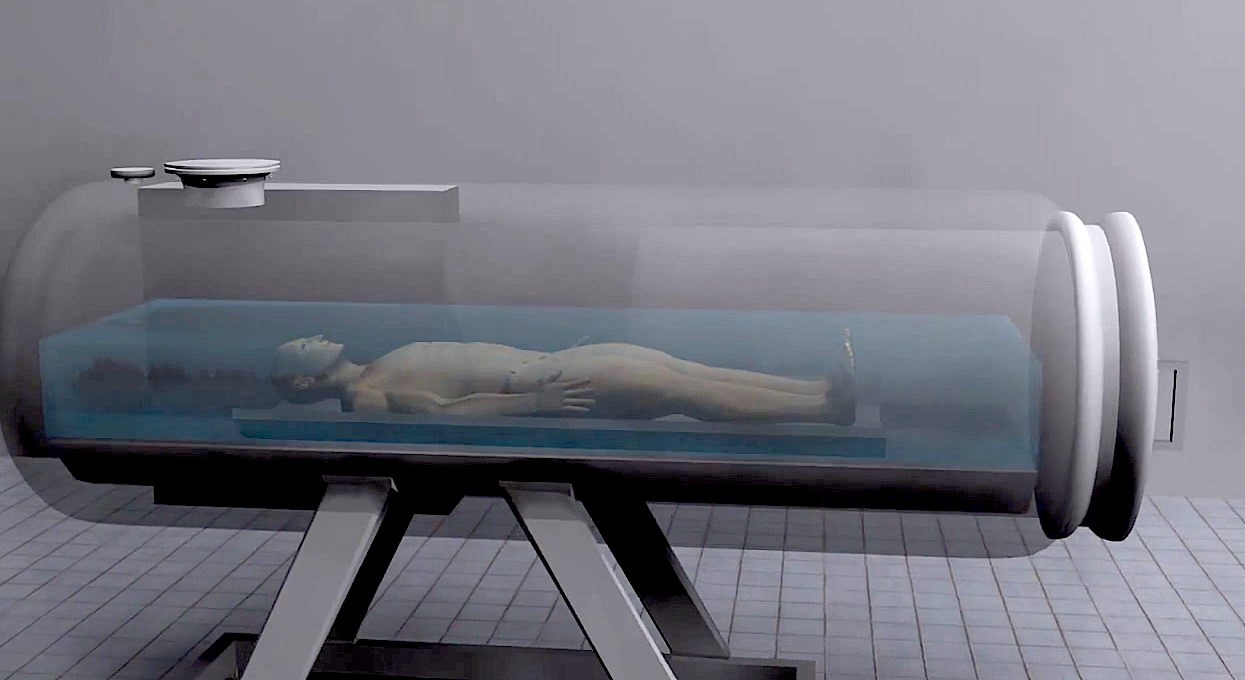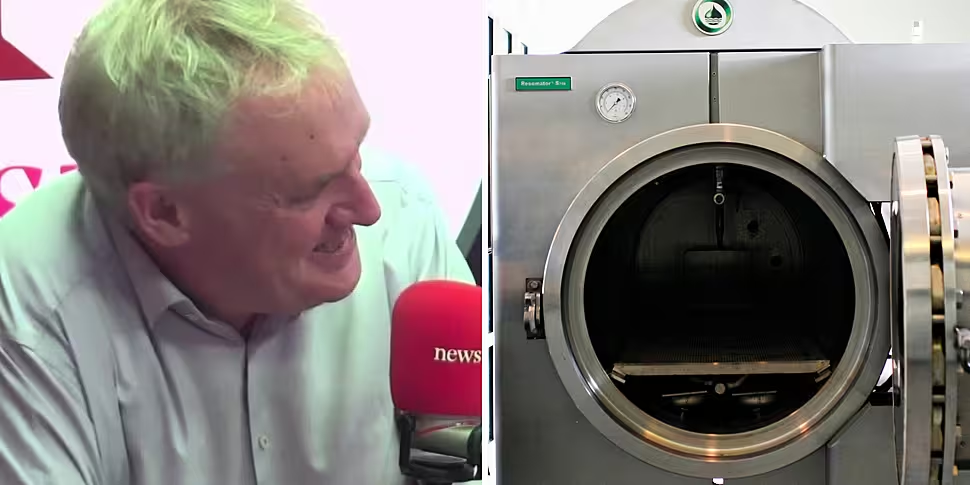Many people try to be eco-conscious in their lives – but now they can be eco-conscious in their deaths as well.
That’s according to Trinity Professor Luke O’Neill, who’s been researching an increasingly popular alternative to burial or cremation known as ‘aquamation’.
“in aquamation, your body is stuck into a vat and in that vat, water is added and then an alkali called potassium hydroxide,” he told Show Me the Science.
“They then heat up the water to about 90 degrees – just below boiling – and over the course of 16 or so hours, your flesh dissolves away.
“It breaks down all your tissues [but] it can’t break down your bones because they’re inorganic.
“So, they get taken out and crushed up and given to your loved ones.”
'Reinvent the funeral business'
Aquamation was developed by a man named Joe Wilson, who worked in waste disposal.
“He invented a device for farms and farm animals to get rid of remains,” Prof O’Neill said.
“He wondered what if he did this for humans – the great phrase he was used he wanted to ‘reinvent the death business’.”
 A representation of the aquamation process. Image: Wikimedia Commons
A representation of the aquamation process. Image: Wikimedia CommonsThe potassium hydroxide solution is incredibly safe, according to Prof O’Neill, and environmentally friendly.
“Cremation will generate 10 times more carbon dioxide than acclimation,” he said.
“When your remains are being incinerated 245 kilograms on average of carbon dioxide goes into the atmosphere.
“With aquamation there’s about 28 kilograms going into the atmosphere.”
Cremation also generates toxins such as mercury, which does not happen in aquamation.
A regular burial also has environmental impacts aquamation does not, according to Prof O’Neill.
“Corpses are injected with chemicals – things like formaldehyde, methanol, mercury and embalmed fluids,” he said.
“When you’re buried in the ground, those chemicals leach onto the soil.
“There are studies showing that if you take a soil sample from a cemetery, it's pretty toxic.”
Aquamation, however, presents its own issues when it comes to what it can dissolve.
“If you've got a replacement hip or breast implants, they won’t dissolve,” Prof O’Neill said.
View this post on Instagram
Bishop Desmond Tutu was one of the first major figures to undergo aquamation as the process becomes more common.
“According to Wilson, there’s massive demand all over the world,” Prof O’Neill said.
“In America, where it all started, its popularity has increased four-fold.”
In Ireland, the sole aquamation provider is Pure Reflections in Navan, Co Meath, which is the first of its kind in Europe.
It charges €1,500 for a ceremony and aquamation – with a free urn.









